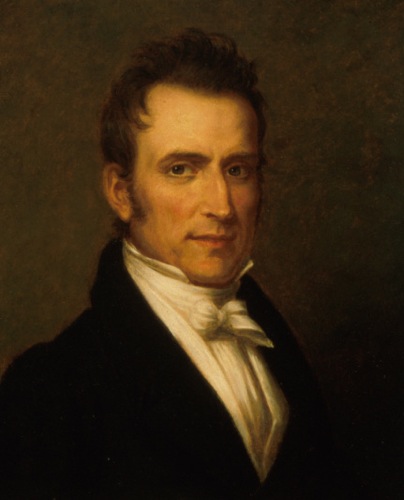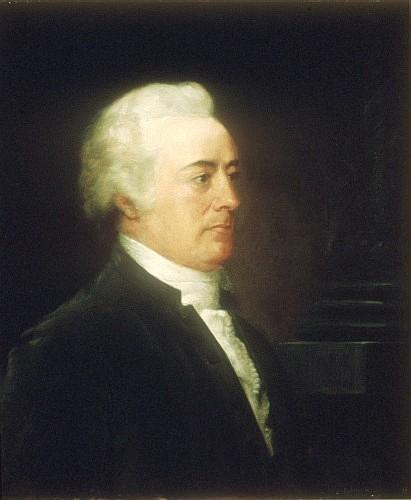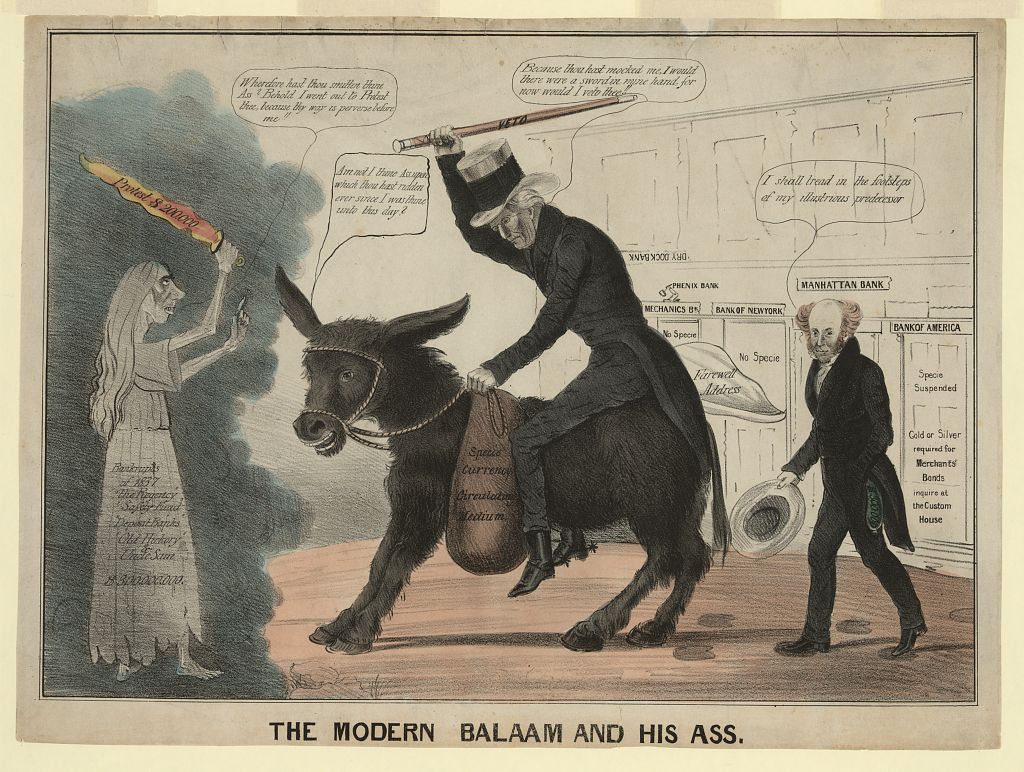|
John McLean
John McLean (March 11, 1785 – April 4, 1861) was an American jurist and politician who served in the United States Congress, as U.S. Postmaster General, and as a justice of the Ohio and U.S. Supreme Courts. He was often discussed for the Whig Party nominations for President, and is also one of the few people who served in all three branches of government. Born in New Jersey, McLean lived in several frontier towns before settling in Ridgeville, Ohio. He founded '' The Western Star'', a weekly newspaper, and established a law practice. He won election to the United States House of Representatives, serving from 1813 until his election to the Ohio Supreme Court in 1816. He resigned from that position to accept appointment to the administration of President James Monroe, becoming the United States Postmaster General in 1823. Under Monroe and President John Quincy Adams, McLean presided over a major expansion of the United States Postal Service. In 1829, President Andrew J ... [...More Info...] [...Related Items...] OR: [Wikipedia] [Google] [Baidu] |
Associate Justice Of The Supreme Court Of The United States
An associate justice of the Supreme Court of the United States is any member of the Supreme Court of the United States other than the chief justice of the United States. The number of associate justices is eight, as set by the Judiciary Act of 1869. Appointments Clause, Article II, Section 2, Clause 2 of the Constitution of the United States grants plenary power to the President of the United States, president to nominate, and with the advice and consent (confirmation) of the United States Senate, Senate, appoint justices to the Supreme Court. Article Three of the United States Constitution, Article III, Section 1 of the Constitution effectively grants life tenure to associate justices, and all other United States federal judge, federal judges, which ends only when a justice dies, retires, resigns, or is removed from office by Federal impeachment in the United States, impeachment. Each Supreme Court justice has a single vote in deciding the cases argued before it, and the chief j ... [...More Info...] [...Related Items...] OR: [Wikipedia] [Google] [Baidu] |
William Henry Harrison
William Henry Harrison (February 9, 1773April 4, 1841) was an American military officer and politician who served as the ninth president of the United States. Harrison died just 31 days after his inauguration in 1841, and had the shortest presidency in United States history. He was also the first United States president to die in office, and a brief constitutional crisis resulted as presidential succession was not then fully defined in the United States Constitution. Harrison was the last president born as a British subject in the Thirteen Colonies and was the paternal grandfather of Benjamin Harrison, the 23rd president of the United States. He was born into the Harrison family of Virginia at their homestead, Berkeley plantation in Charles City County, Virginia; he was a son of Benjamin Harrison V—a Founding Father of the United States. During his early military career, Harrison participated in the 1794 Battle of Fallen Timbers, an American military victory that ended the N ... [...More Info...] [...Related Items...] OR: [Wikipedia] [Google] [Baidu] |
United States Congress
The United States Congress is the legislature of the federal government of the United States. It is bicameral, composed of a lower body, the House of Representatives, and an upper body, the Senate. It meets in the U.S. Capitol in Washington, D.C. Senators and representatives are chosen through direct election, though vacancies in the Senate may be filled by a governor's appointment. Congress has 535 voting members: 100 senators and 435 representatives. The U.S. vice president has a vote in the Senate only when senators are evenly divided. The House of Representatives has six non-voting members. The sitting of a Congress is for a two-year term, at present, beginning every other January. Elections are held every even-numbered year on Election Day. The members of the House of Representatives are elected for the two-year term of a Congress. The Reapportionment Act of 1929 establishes that there be 435 representatives and the Uniform Congressional Redistricting Act requires ... [...More Info...] [...Related Items...] OR: [Wikipedia] [Google] [Baidu] |
Jurist
A jurist is a person with expert knowledge of law; someone who analyses and comments on law. This person is usually a specialist legal scholar, mostly (but not always) with a formal qualification in law and often a legal practitioner. In the United Kingdom the term "jurist" is mostly used for legal academics, while in the United States the term may also be applied to a judge. With reference to Roman law, a "jurist" (in English) is a jurisconsult (''iurisconsultus''). The English term ''jurist'' is to be distinguished from similar terms in other European languages, where it may be synonymous with legal professional, meaning anyone with a professional law degree that qualifies for admission to the legal profession, including such positions as judge or attorney. In Germany, Scandinavia and a number of other countries ''jurist'' denotes someone with a professional law degree, and it may be a protected title, for example in Norway. Thus the term can be applied to attorneys, judges an ... [...More Info...] [...Related Items...] OR: [Wikipedia] [Google] [Baidu] |
Harvard University
Harvard University is a private Ivy League research university in Cambridge, Massachusetts. Founded in 1636 as Harvard College and named for its first benefactor, the Puritan clergyman John Harvard, it is the oldest institution of higher learning in the United States and one of the most prestigious and highly ranked universities in the world. The university is composed of ten academic faculties plus Harvard Radcliffe Institute. The Faculty of Arts and Sciences offers study in a wide range of undergraduate and graduate academic disciplines, and other faculties offer only graduate degrees, including professional degrees. Harvard has three main campuses: the Cambridge campus centered on Harvard Yard; an adjoining campus immediately across Charles River in the Allston neighborhood of Boston; and the medical campus in Boston's Longwood Medical Area. Harvard's endowment is valued at $50.9 billion, making it the wealthiest academic institution in the world. Endowment inco ... [...More Info...] [...Related Items...] OR: [Wikipedia] [Google] [Baidu] |
Jacksonian Democracy
Jacksonian democracy was a 19th-century political philosophy in the United States that expanded suffrage to most white men over the age of 21, and restructured a number of federal institutions. Originating with the seventh U.S. president, Andrew Jackson and his supporters, it became the nation's dominant political worldview for a generation. The term itself was in active use by the 1830s. This era, called the Jacksonian Era or Second Party System by historians and political scientists, lasted roughly from Jackson's 1828 election as president until slavery became the dominant issue with the passage of the Kansas–Nebraska Act in 1854 and the political repercussions of the American Civil War dramatically reshaped American politics. It emerged when the long-dominant Democratic-Republican Party became factionalized around the 1824 United States presidential election. Jackson's supporters began to form the modern Democratic Party. His political rivals John Quincy Adams and Henr ... [...More Info...] [...Related Items...] OR: [Wikipedia] [Google] [Baidu] |
Republican Party (United States)
The Republican Party, also referred to as the GOP ("Grand Old Party"), is one of the two major contemporary political parties in the United States. The GOP was founded in 1854 by anti-slavery activists who opposed the Kansas–Nebraska Act, which allowed for the potential expansion of chattel slavery into the western territories. Since Ronald Reagan's presidency in the 1980s, conservatism has been the dominant ideology of the GOP. It has been the main political rival of the Democratic Party since the mid-1850s. The Republican Party's intellectual predecessor is considered to be Northern members of the Whig Party, with Republican presidents Abraham Lincoln, Rutherford B. Hayes, Chester A. Arthur, and Benjamin Harrison all being Whigs before switching to the party, from which they were elected. The collapse of the Whigs, which had previously been one of the two major parties in the country, strengthened the party's electoral success. Upon its founding, it supported c ... [...More Info...] [...Related Items...] OR: [Wikipedia] [Google] [Baidu] |
Free Soil Party
The Free Soil Party was a short-lived coalition political party in the United States active from 1848 to 1854, when it merged into the Republican Party. The party was largely focused on the single issue of opposing the expansion of slavery into the western territories of the United States. The Free Soil Party formed during the 1848 presidential election, which took place in the aftermath of the Mexican–American War and debates over the extension of slavery into the Mexican Cession. After the Whig Party and the Democratic Party nominated presidential candidates who were unwilling to rule out the extension of slavery into the Mexican Cession, anti-slavery Democrats and Whigs joined with members of the abolitionist Liberty Party to form the new Free Soil Party. Running as the Free Soil presidential candidate, former President Martin Van Buren won 10.1 percent of the popular vote, the strongest popular vote performance by a third party up to that point in U.S. history. Thoug ... [...More Info...] [...Related Items...] OR: [Wikipedia] [Google] [Baidu] |
Whig Party (United States)
The Whig Party was a political party in the United States during the middle of the 19th century. Alongside the slightly larger Democratic Party, it was one of the two major parties in the United States between the late 1830s and the early 1850s as part of the Second Party System. Four presidents were affiliated with the Whig Party for at least part of their terms. Other prominent members of the Whig Party include Henry Clay, Daniel Webster, Rufus Choate, William Seward, John J. Crittenden, and John Quincy Adams. The Whig base of support was centered among entrepreneurs, professionals, planters, social reformers, devout Protestants, and the emerging urban middle class. It had much less backing from poor farmers and unskilled workers. The party was critical of Manifest Destiny, territorial expansion into Texas and the Southwest, and the Mexican-American War. It disliked strong presidential power as exhibited by Jackson and Polk, and preferred Congressional dominance in lawma ... [...More Info...] [...Related Items...] OR: [Wikipedia] [Google] [Baidu] |
Anti-Masonic Party
The Anti-Masonic Party was the earliest third party in the United States. Formally a single-issue party, it strongly opposed Freemasonry, but later aspired to become a major party by expanding its platform to take positions on other issues. After emerging as a political force in the late 1820s, most of the Anti-Masonic Party's members joined the Whig Party in the 1830s and the party disappeared after 1838. The party was founded following the disappearance of William Morgan, a former Mason who had become a prominent critic of the Masonic organization. Many believed that Masons had murdered Morgan for speaking out against Masonry and subsequently many churches and other groups condemned Masonry. As many Masons were prominent businessmen and politicians, the backlash against the Masons was also a form of anti- elitism. The Anti-Masons purported that Masons posed a threat to American republicanism by secretly trying to control the government. Furthermore, there was a strong fear tha ... [...More Info...] [...Related Items...] OR: [Wikipedia] [Google] [Baidu] |
Democratic Party (United States)
The Democratic Party is one of the two major contemporary political parties in the United States. Founded in 1828, it was predominantly built by Martin Van Buren, who assembled a wide cadre of politicians in every state behind war hero Andrew Jackson, making it the world's oldest active political party.M. Philip Lucas, "Martin Van Buren as Party Leader and at Andrew Jackson's Right Hand." in ''A Companion to the Antebellum Presidents 1837–1861'' (2014): 107–129."The Democratic Party, founded in 1828, is the world's oldest political party" states Its main political rival has been the Republican Party since the 1850s. The party is a big tent, and though it is often described as liberal, it is less ideologically uniform than the Republican Party (with major individuals within it frequently holding widely different political views) due to the broader list of unique voting blocs that compose it. The historical predecessor of the Democratic Party is considered to be th ... [...More Info...] [...Related Items...] OR: [Wikipedia] [Google] [Baidu] |
National Republican Party
The National Republican Party, also known as the Anti-Jacksonian Party or simply Republicans, was a political party in the United States that evolved from a conservative-leaning faction of the Democratic-Republican Party that supported John Quincy Adams in the 1824 presidential election. Known initially as "Adams-Clay Republicans" in the wake of the 1824 campaign, Adams's political allies in Congress and at the state-level were referred to as "Adams's Men" during his presidency (1825–1829). When Andrew Jackson became president, following his victory over Adams in the 1828 election, this group became the opposition, and organized themselves as "Anti-Jackson". The use of the term "National Republican" dates from 1830. Henry Clay served as the party's nominee in the 1832 election, but he was defeated by Jackson. The party supported Clay's American System of nationally financed internal improvements and a protective tariff. After the 1832 election, opponents of Jackson coal ... [...More Info...] [...Related Items...] OR: [Wikipedia] [Google] [Baidu] |







.jpg)

.jpg)
